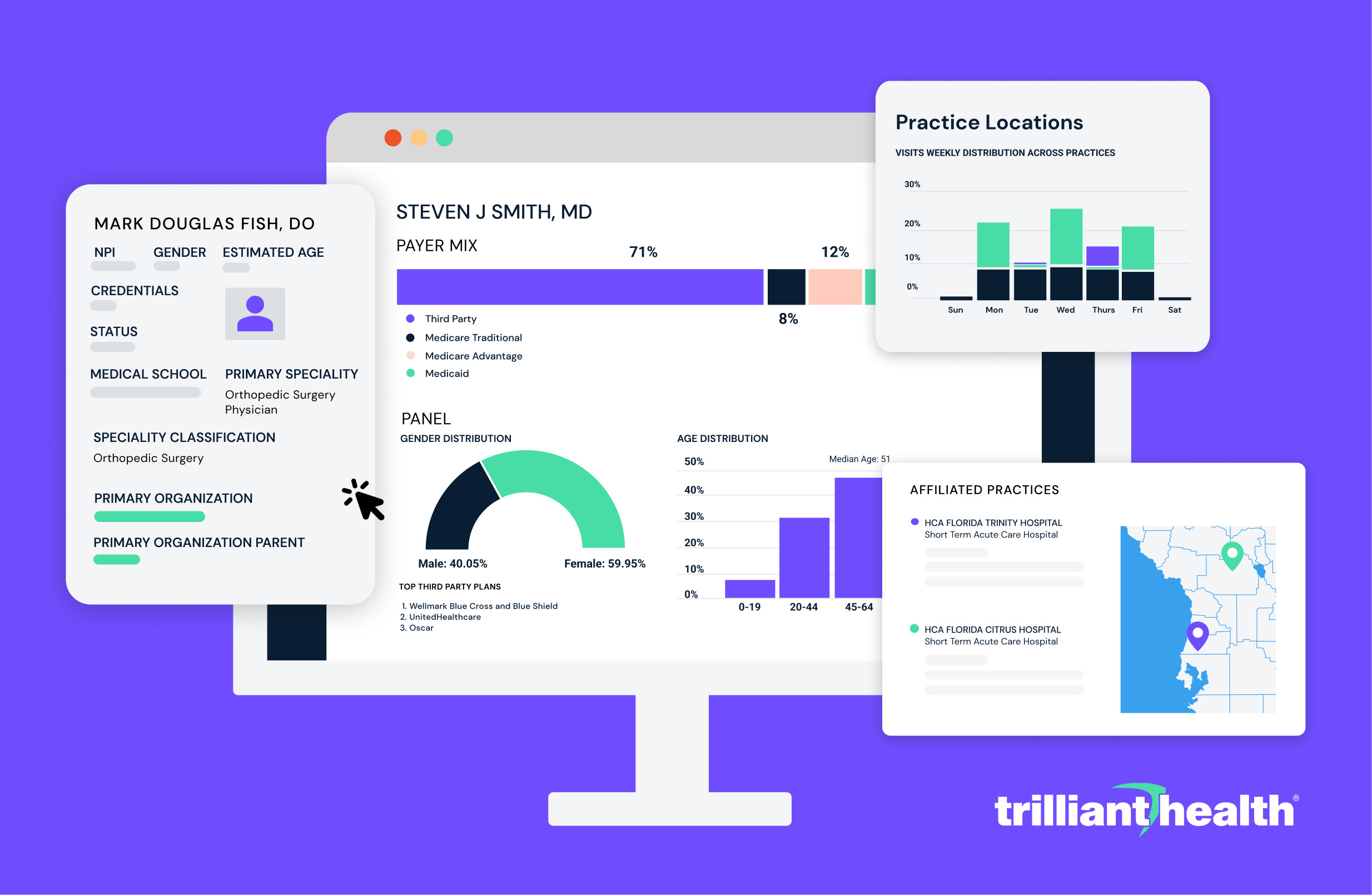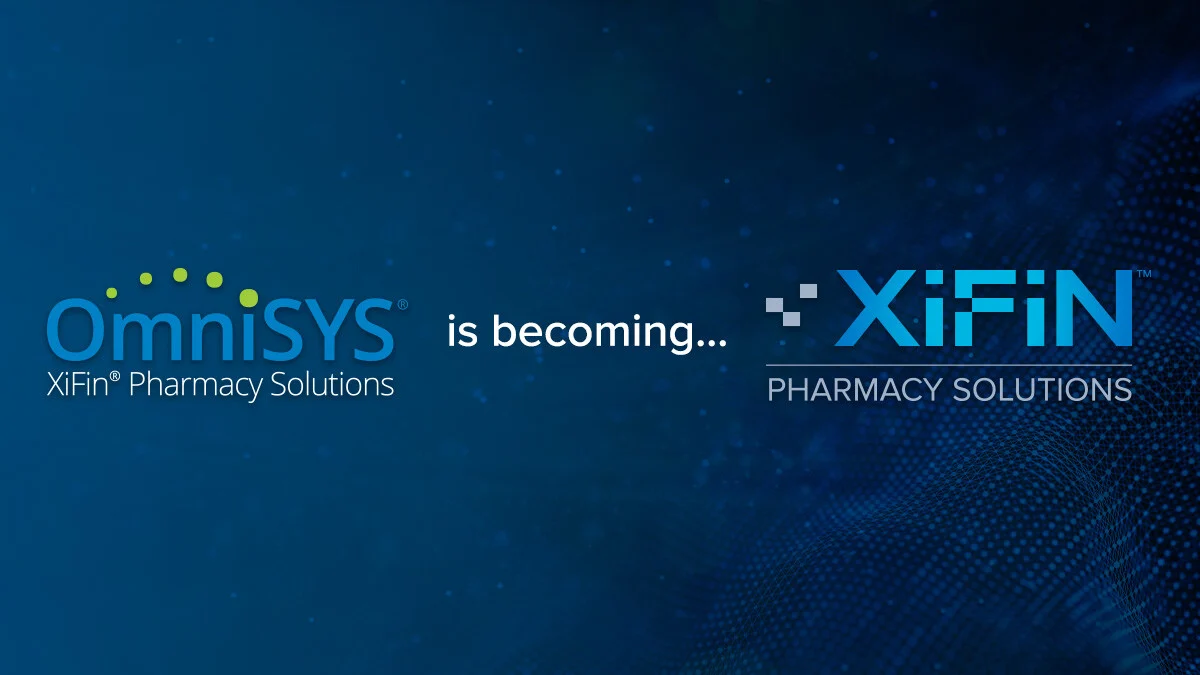What You Should Know:
- Paige, a leader in next-generation AI technology, announced the appointment of Razik Yousfi as Chief Technology Officer and Chief Executive Officer. Yousfi, who has been instrumental in Paige’s product development and technology strategy since 2019, will now lead the company’s efforts to advance AI in pathology and oncology.
- Under Yousfi’s leadership, Paige will intensify its focus on developing cutting-edge AI solutions to address critical challenges in
Read More
Health IT | News, Analysis, Insights - HIT Consultant
Trilliant Health Releases Free Provider Directory
What You Should Know:
- Trilliant Health, the healthcare industry’s leading analytics firm, released a free version of its Provider Directory application.
- The easy-to-use application creates a single source of truth for accurate and timely information about millions of healthcare providers and is available to the public at no cost.
Enhancing Provider Directories: A Foundation for Improved Healthcare Access and Coordination
Accurate provider directories are essential for:
-
Read More
O.C. Tanner and CipherHealth Partner to Boost Healthcare Morale
What You Should Know:
- O.C. Tanner, the global authority for strengthening organizational culture through meaningful employee recognition, today announced an integration with CipherHealth, a recognized leader and innovator in patient-centered communications and insights for the nation's leading healthcare systems.
- This will enable healthcare professionals to better engage with colleagues and patients across the care continuum through recognition.
Strengthening Healthcare Workforce
Read More
Authenticx Launches AI Models to Detect Reportable Events in Healthcare Conversations
What You Should Know:
- Authenticx, a leader in conversational intelligence for healthcare launches new suite of AI models capable of detecting reportable events within customer interactions.
- The new AI models empowers pharmacovigilance and patient safety teams to operate more efficiently and effectively.
Detecting Healthcare-Specific Compliance Events and Streamlining Reporting
The AI models can identify various reportable safety events, including adverse events,
Read More
XiFin Unifies Products, Launches Payor Rate Transparency Monitor
What You Should Know:
- XiFin, a leader in healthcare information technologies and services, announced today the unification of its products under a single brand and the launch of a new pharmacy payor rate transparency monitor.
- The integrated platform aims to provide greater flexibility and functionality for managing clinical services, while the new monitor offers pharmacies valuable insights into reimbursement rates.
Unifying for Strength
XiFin's decision to consolidate its
Read More
Northwestern Deploys Epic-Integrated DAX Copilot Across Enterprise
What You Should Know:
- Nuance Communications, a Microsoft company, announced that Northwestern Medicine has selected Dragon Ambient eXperience (DAX) Copilot as its ambient voice solution.
- The AI-powered technology will be integrated into Epic EHR to streamline clinical documentation and enhance patient care.
Nuance's DAX Copilot Reduces Physician Burnout and Improves Care
DAX Copilot addresses the critical issue of physician burnout by automating time-consuming
Read More
HealthEdge and Zelis Partner to Modernize Healthcare Payments
What You Should Know:
- HealthEdge and Zelis have announced a strategic partnership to streamline healthcare payments.
- The collaboration combines HealthEdge's next-generation core administrative processing system (CAPS) with Zelis' Advanced Payments Platform (ZAPP) to enhance efficiency, accuracy, and transparency in the payment process.
Creating Seamless Payment Process
By integrating their platforms, HealthEdge and Zelis aim to improve the overall experience for
Read More
How Debt-Free Education Programs Can Reduce the Healthcare Staffing Shortage
The U.S. is currently suffering from a severe shortage of healthcare workers, including physicians, nurses, and allied health roles. For the second year in a row, hospital CEOs cited workforce challenges as their top concern on the American College of Healthcare Executives annual survey. And the situation is only predicted to get worse. For example, the Bureau of Labor Statistics estimates that, by 2030, the U.S. will face a shortage of 275,000 nurses.
Certain contributing factors to this
Read More
Stryker Acquires care.ai to Bolster AI-Powered Healthcare Solutions
What You Should Know:
- Stryker Corporation (NYSE: SYK) announced the definitive agreement to acquire care.ai, a leading company specializing in AI-powered virtual care, smart room technology, and ambient intelligence solutions.
- The acquisition of care.ai reinforces Stryker's existing healthcare IT offerings and wirelessly connected medical device portfolio. This move comes on the heels of the company's previously announced "very active deal pipeline" for the latter
Read More
Kaiser Deploys Abridge’s GenAI Clinical Documentation Across Enterprise
What You Should Know:
- Kaiser Permanente, the nation's largest non-profit integrated healthcare provider, has announced the rollout of a new assisted clinical documentation tool across its extensive network.
- The solution leverages AI technology to streamline administrative tasks and empower doctors to focus on personalized care for their patients.
Prioritizing Patient-Centered Care
Available at Kaiser Permanente's 40 hospitals and over 600 medical offices in eight
Read More










